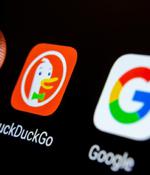Security News

"Privacy Center provides helpful information about five common privacy topics: sharing, security, data collection, data use and ads," the social technology firm said in a press release. Users part of the pilot will be able to access Privacy Center by navigating to Settings and Privacy on the desktop version of Facebook.
The Commission nationale de l'informatique et des libertés, France's data protection watchdog, has slapped Facebook and Google with fines of €150 million and €60 million for violating E.U. privacy rules by failing to provide users with an easy option to reject cookie tracking technology. HTTP cookies are small pieces of data created while a user is browsing a website and placed on the user's computer or other device by the user's web browser to track online activity across the web and store information about the browsing sessions, including logins and details entered in form fields such as names and addresses.

The privacy-focused web browser Brave continues to grow rapidly as the company reached 50 million monthly active users for the first time in 2021. What makes Brave browser stand out is that they do not track your searches or share any personal or identifying data with third-party companies like Google or Microsoft.

Commentary: The privacy-oriented search engine keeps winning fans. The privacy-oriented search engine netted more than 35 billion search queries in 2021, a 46.4% jump over 2020.

The privacy-focused search engine DuckDuckGo continues to grow rapidly, with the company now averaging over 100 million daily search queries and growing by almost 47% in 2021. To build their search index, the search engine uses the DuckDuckBot spider to crawl sites and receive data from partners, such as Wikipedia and Bing.

Okera revealed its top industry predictions and trends expected to emerge in data privacy and governance for 2022 according to the company's CEO, Nick Halsey; CTO, Nong Li; and Okera Advisory Board member and recent Gartner VP analyst, Sanjeev Mohan. Anxiety about the proliferation of data privacy regulations - around the world and within U.S. states - will ratchet up in 2022.

A Bluetooth phone designed to evoke the carefree days of early childhood has been found to instead threaten the very adult prospect of being surveilled in your home. The phone is the Fisher Price Chatter Special Edition, a device that adds Bluetooth and a speaker to the smiling, brightly coloured, wheeled, rotary dial phone on which it's previously been possible to make calls only by using one's imagination.

Between the need for secure access to digital services and the demand for increased security, the case for a trusted and verifiable ID system has never been stronger. One question remains: Who gets to implement this system? If the answer is a company or a government, then concerns around personal privacy and civil liberties become quite relevant.

For anyone looking to gain an extra layer of privacy on a desktop or laptop, Kodachi Linux might be the perfect option. Do you veer toward the over-cautious when it comes to your privacy? Do you loathe the idea that you're being tracked by third-party cookies, and standard browsers and operating systems aren't capable of doing enough to keep you safe? At the same time, are you too busy to learn a new operating system?

Russia has stepped up its censorship efforts in the country by fully banning access to the Tor web anonymity service, coinciding with the ban of six virtual private network operators, as the government continues to control the internet and crackdown on attempts to circumvent locally imposed web restrictions. Russia accounts for 15% of all Tor users, with more than 310,000 daily users, second only to the U.S. Tor, short for The Onion Router, enables users to automatically encrypt and reroute their web requests through a network of Tor relays for anonymizing network traffic, as well as help bypass censorship and protect their identities from the internet service providers and the websites they visit.